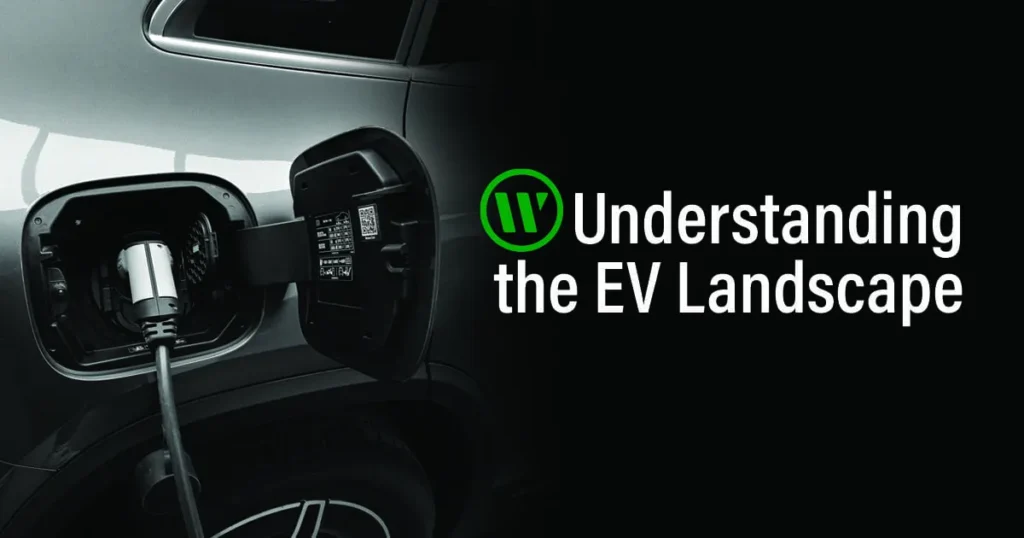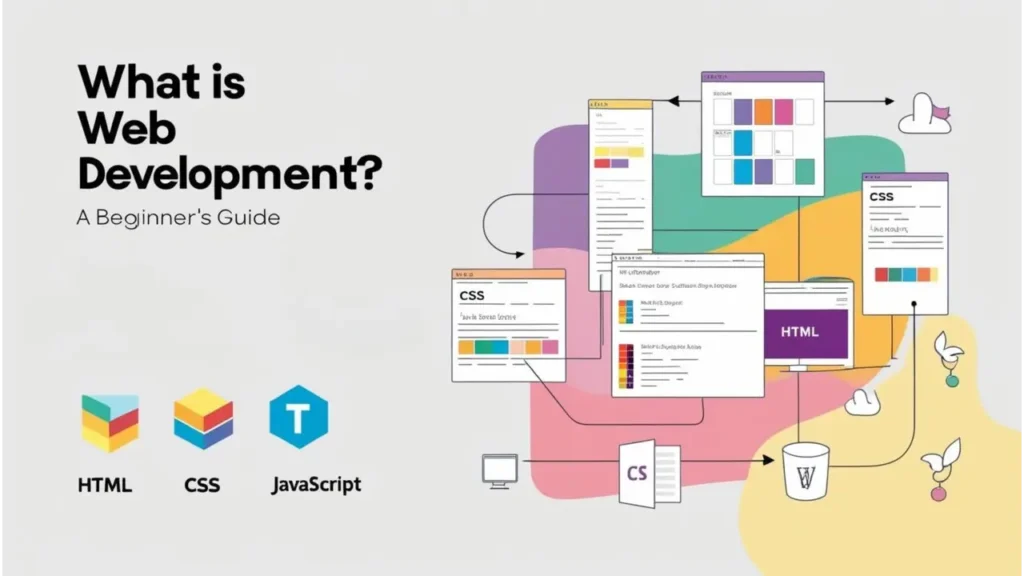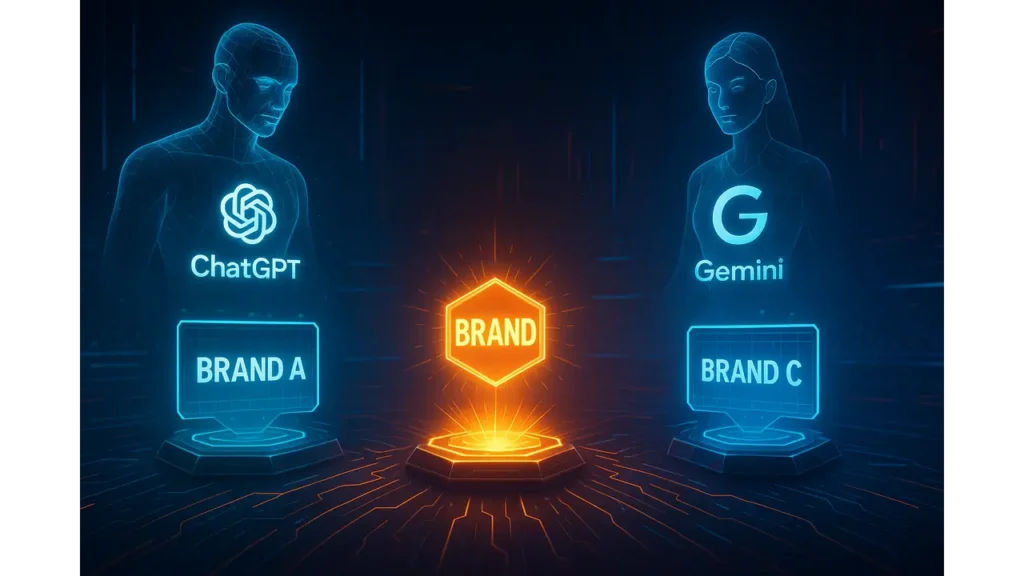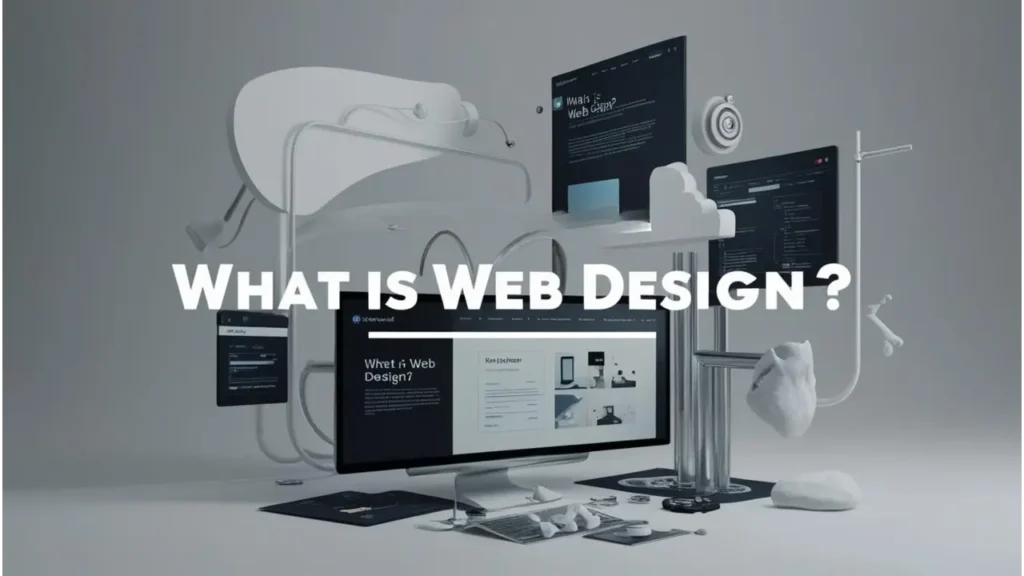The electric vehicle (EV) market is rapidly evolving, transforming from a niche sector into a dynamic force that reshapes transportation and energy sectors globally. As businesses increasingly transition to sustainable practices, B2B marketing strategies for EV products and services have become crucial. This blog explores effective B2B EV marketing strategies that resonate with businesses looking to adopt electric vehicles and related technologies.
Key Takeaways
- Content is King
- Targeted Email Marketing
- Leverage Social Media
- Form Strategic Partnerships
- SEO for Visibility
- Data-Driven Decisions
- Invest in CRM Systems
- Focus on Sustainability
- Embrace Innovation
- Customer Experience Matters
Table of Contents
Understanding the B2B EV Landscape
Before diving into effective marketing strategies, it’s essential to understand the landscape of B2B EV marketing. This sector includes manufacturers, fleet operators, energy companies, charging infrastructure providers, and software developers catering to businesses looking to transition to electric mobility.

The Importance of B2B EV Marketing
B2B EV marketing is vital for several reasons:
- Growing Demand for Sustainable Solutions: Companies across various industries are focusing on sustainability. They seek partners who can provide electric vehicles and supporting technology.
- Government Incentives: Governments worldwide are introducing incentives for businesses to adopt EVs, creating an opportunity for marketers to educate and inform potential clients about available benefits.
- Innovation in Technology: As the EV market evolves, innovative solutions like vehicle-to-grid (V2G) technology and advanced charging solutions are emerging. Businesses need to stay informed about these advancements.
- Building Brand Loyalty: Establishing a strong brand presence in the B2B EV space can foster long-term relationships with clients, leading to repeat business and referrals.
Key B2B EV Marketing Strategies
1. Content Marketing and Thought Leadership
Creating Informative Content
Producing high-quality, informative content is crucial for positioning your brand as a thought leader in the B2B EV market. This includes:
- White Papers: In-depth reports on EV trends, technology, and sustainability practices.
- Case Studies: Highlighting successful implementations of EV solutions in businesses, showcasing measurable benefits.
- Blogs and Articles: Regularly updated content focusing on industry news, product launches, and emerging technologies.
Types of Content to Develop
- Infographics: Create visually appealing infographics that summarize complex data and trends in the EV market. Infographics are easily shareable on social media and can drive traffic back to your website.
- E-books: Develop comprehensive e-books that delve into specific aspects of EVs, such as financing options, regulatory frameworks, or future trends in the industry.
- Video Content: Produce videos that demonstrate the benefits of your products, provide tutorials, or feature customer testimonials.
Hosting Webinars and Podcasts
Interactive formats like webinars and podcasts can effectively engage your audience, providing them with valuable insights and expert opinions on the EV landscape.
- Expert Panels: Host webinars with industry leaders to discuss the future of electric mobility, allowing for audience interaction and Q&A sessions.
- Podcast Series: Develop a podcast series focusing on various aspects of the EV market, interviewing stakeholders, and discussing current trends and challenges.
2. Targeted Email Marketing
Email marketing remains one of the most effective B2B marketing strategies. For B2B EV marketing, consider:
- Segmentation: Tailoring your email lists based on industry, company size, and previous interactions ensures relevant content reaches the right audience.
- Educational Newsletters: Regular updates on EV trends, government incentives, and new technologies keep your audience informed and engaged.
Advanced Email Strategies
- Personalization: Use dynamic content in emails that change based on the recipient’s industry, previous interactions, and preferences, creating a more tailored experience.
- Drip Campaigns: Implement automated drip campaigns that nurture leads through a series of emails, guiding them through the buyer’s journey until they are ready to make a purchase.

3. Utilizing Social Media Platforms
LinkedIn as a Key Channel
LinkedIn is particularly effective for B2B marketing. Sharing industry insights, company news, and engaging with professionals can help build credibility and attract potential clients.
- Sponsored Content: Use LinkedIn’s advertising features to promote high-value content directly to decision-makers in relevant industries.
Engaging Visual Content
Utilize platforms like Instagram and Facebook to share engaging visual content showcasing your EV solutions, success stories, and behind-the-scenes looks at your company.
Social Media Strategy Examples
- Success Stories: Share posts about how your solutions have helped clients save costs or improve their carbon footprint. Use testimonials and case studies to reinforce these narratives.
- Live Q&A Sessions: Host live sessions on platforms like Facebook or Instagram where your team answers questions related to EV solutions, providing immediate value and engagement.
4. Partnerships and Collaborations
Forming strategic partnerships can significantly enhance your B2B EV marketing efforts. Collaborate with:
- EV Manufacturers: Teaming up with vehicle manufacturers can provide access to their networks and enhance credibility.
- Charging Infrastructure Providers: Collaborating with companies that provide charging solutions can offer a comprehensive package to potential clients.
Co-Marketing Opportunities
- Joint Webinars: Organize webinars with partners where both companies can showcase their products and solutions, broadening the audience reach.
- Shared Resources: Collaborate on creating resources such as guides or white papers that highlight the benefits of integrating both companies’ solutions.
5. SEO and Online Visibility
Investing in SEO is essential for increasing your online visibility in the B2B EV sector.
Keyword Optimization
Use targeted keywords, including “B2B EV marketing,” throughout your website and content to improve search engine rankings. Research relevant keywords and phrases that potential clients might use when searching for EV solutions.
Local SEO
If your business operates regionally, optimize your website for local searches. This includes:
- Google My Business: Setting up and optimizing your Google My Business profile to appear in local search results.
- Local Keywords: Incorporating geographic keywords into your content and website.
Advanced SEO Tactics
- Backlink Building: Focus on acquiring backlinks from reputable industry sites. Guest blogging and partnerships can help you gain valuable links.
- Voice Search Optimization: With the rise of voice-activated devices, optimize your content for voice search by using natural language and focusing on long-tail keywords.

6. Data-Driven Marketing
Leveraging data analytics can significantly enhance your B2B EV marketing strategies. Consider:
- Tracking Engagement: Use analytics tools to track engagement metrics for your content and campaigns, allowing for real-time adjustments.
- Customer Insights: Analyze customer data to understand preferences and behaviors, enabling you to tailor marketing efforts accordingly.
Implementing Analytics Tools
- Google Analytics: Use Google Analytics to monitor website traffic, user behavior, and conversion rates, helping to refine marketing strategies.
- CRM Analytics: Integrate analytics with your CRM to gain insights into customer interactions, preferences, and sales performance.
7. Customer Relationship Management (CRM)
Implementing a robust CRM system can streamline your B2B EV marketing efforts. A CRM allows you to:
- Manage Leads Effectively: Track interactions with potential clients, ensuring timely follow-ups.
- Segment Your Audience: Organize contacts based on various criteria to tailor your marketing messages.
CRM Best Practices
- Regular Updates: Ensure that your CRM data is regularly updated to maintain accuracy in targeting and communications.
- Training: Provide training for your team on how to effectively use CRM tools to maximize their potential.
Practical Applications of B2B EV Marketing Strategies
To understand how these strategies can be implemented effectively, let’s look at some practical applications.
Case Study 1: XYZ Fleet Solutions
Background: XYZ Fleet Solutions specializes in providing electric vehicles for commercial fleets.
Marketing Strategy: They developed a comprehensive content marketing strategy that included:
- Educational Blog Series: Covering topics such as the benefits of EVs for businesses, cost savings, and sustainability.
- White Papers: Providing detailed insights on the future of electric fleets and government incentives.
- Webinars: Hosting sessions with industry experts discussing the transition to electric fleets.
Results: This strategy positioned XYZ Fleet Solutions as a thought leader, increasing website traffic by 150% and generating a 30% increase in qualified leads.
Case Study 2: EV Charging Solutions Inc.
Background: EV Charging Solutions Inc. provides charging infrastructure for businesses transitioning to electric vehicles.
Marketing Strategy: They focused on partnerships and local SEO by:
- Collaborating with Local Businesses: Partnering with companies looking to install charging stations in their facilities, providing bundled services.
- Optimizing for Local Searches: Enhancing their website with local keywords and creating a Google My Business profile.
Results: The partnership strategy led to a 40% increase in customer inquiries, and local SEO efforts improved their search visibility significantly.

Case Study 3: GreenTech Innovations
Background: GreenTech Innovations is a software provider focusing on fleet management solutions for electric vehicles.
Marketing Strategy: They implemented data-driven marketing by:
- Using Analytics Tools: Tracking customer interactions and engagement metrics to refine their marketing campaigns.
- Personalized Email Campaigns: Segmenting their audience based on industry and previous interactions, sending tailored messages that resonated with recipients.
Results: GreenTech Innovations saw a 25% increase in email open rates and a 20% increase in conversion rates.
Case Study 4: EcoDrive Solutions
Background: EcoDrive Solutions is an EV manufacturing company targeting fleet operators in the logistics sector.
Marketing Strategy:
- Interactive Content: Developed an interactive ROI calculator on their website that allows businesses to calculate potential savings from switching to electric vehicles.
- Social Media Campaigns: Launched targeted social media ads showcasing case studies of successful fleet transformations using their vehicles.
Results: The ROI calculator became a popular tool, leading to a 60% increase in website engagement, and social media ads resulted in a 35% increase in inquiries.
The Future of B2B EV Marketing
As the EV industry continues to grow, B2B EV marketing strategies will need to evolve. Here are some trends to keep an eye on:
1. Increased Focus on Sustainability
Businesses will increasingly seek partners committed to sustainable practices. B2B EV marketing will need to highlight sustainability initiatives and the long-term benefits of electric vehicles.
2. Integration of AI and Automation
Leveraging AI for personalized marketing will become more prevalent. Automation tools can streamline marketing processes, allowing for more efficient targeting and engagement.
3. Enhanced Data Privacy Measures
With increasing regulations around data privacy, B2B marketers must ensure their strategies comply with legal standards while effectively reaching their audience.
4. Emphasis on Customer Experience
Focusing on the customer journey and delivering exceptional experiences will become paramount. Marketers will need to understand and address customer pain points throughout the purchasing process.
5. Adoption of Virtual and Augmented Reality
Utilizing virtual reality (VR) and augmented reality (AR) in marketing can provide immersive experiences. For example, showcasing how a fleet of electric vehicles would function in a business’s operations through VR can enhance engagement and understanding.

Frequently Asked Questions (F&Q)
1. What is B2B EV marketing?
B2B EV marketing refers to marketing strategies and tactics specifically aimed at businesses looking to adopt electric vehicles (EVs) for their fleets or operations. This includes educating potential clients about the benefits of EVs and promoting relevant products and services.
2. Why is sustainability important in B2B EV marketing?
Sustainability is increasingly important as businesses seek to reduce their environmental impact. Highlighting sustainable practices and the benefits of EVs can attract companies looking to enhance their eco-friendly initiatives.
3. What types of content should I create for B2B EV marketing?
Effective content can include blogs, white papers, case studies, videos, infographics, and webinars that educate and inform businesses about the advantages of electric vehicles.
4. How can social media be used in B2B EV marketing?
Social media platforms, especially LinkedIn, can be used to share industry insights, success stories, and visual content that engages and informs your target audience, helping to build brand awareness and relationships.
5. What role does data play in B2B EV marketing?
Data is essential for understanding customer behavior, measuring marketing effectiveness, and making informed decisions. Utilizing analytics tools can help refine strategies and improve engagement.
6. How can I measure the success of my B2B EV marketing strategies?
Success can be measured through key performance indicators (KPIs) such as website traffic, lead conversion rates, social media engagement, email open rates, and overall return on investment (ROI).
7. What are some effective ways to generate leads in B2B EV marketing?
Effective lead generation tactics include offering valuable content (like white papers or ROI calculators), hosting webinars, and utilizing targeted email campaigns to engage potential clients.
8. Should I invest in partnerships for my B2B EV marketing?
Yes, forming strategic partnerships with EV manufacturers, charging infrastructure providers, and sustainability organizations can enhance your credibility and expand your reach in the market.
9. How can emerging technologies like AI and automation benefit B2B EV marketing?
AI and automation can streamline marketing processes, improve targeting and personalization, and enhance customer experiences, leading to more effective campaigns.
10. What are the future trends to watch in B2B EV marketing?
Key trends include an increased focus on sustainability, the integration of AI and automation, enhanced data privacy measures, and the use of virtual and augmented reality for immersive marketing experiences.
Conclusion
B2B EV marketing is more crucial than ever as businesses strive to embrace sustainable practices and transition to electric vehicles. By implementing effective strategies such as content marketing, targeted email campaigns, social media engagement, partnerships, and data-driven approaches, companies can establish a strong presence in the B2B EV landscape.
As the market continues to evolve, staying ahead of trends and adapting marketing strategies will be essential for success. By prioritizing sustainability, enhancing customer experiences, and leveraging innovative technologies, businesses can thrive in the competitive B2B EV market.
In summary, the future of B2B EV marketing is bright for those willing to embrace change, innovate, and build meaningful relationships with their clients. By understanding the unique needs and challenges of businesses transitioning to electric vehicles, marketers can tailor their strategies to drive engagement, foster trust, and ultimately accelerate the adoption of electric mobility solutions.
For additional related blogs, please check out our website : WODO DIGITAL












